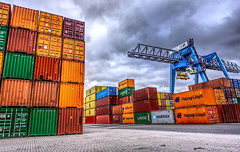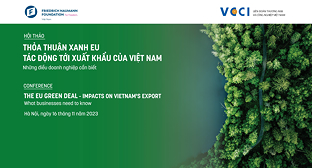Trade 'remedies' – the US barks, but where's the bite?
16/04/2018 12:00

WASHINGTON: US President Donald Trump’s administration claims it has doubled America’s efforts to fight unfair trade, compared to Barack Obama’s presidency.
But a closer look at data from US trade officials’ efforts to counter the dumping and illegitimate subsidies accused of hurting US companies shows Team Trump’s efforts appear to be lagging.
The president so far has not carried out his most dire warnings on trade.
Trump has retreated from threats to scrap major trade agreements and on Thursday said he might even re-enter the Trans-Pacific Partnership – which he withdrew from after taking office last year.
He has also temporarily exempted America’s largest trading partners from punishing tariffs on steel and aluminium, while his heaviest tariffs on Chinese goods have yet to take effect.
But since last year, the administration has touted a blitz of one-off efforts to slap tariffs on a series of manufactured items, industrial supplies and agricultural goods. The aim is to protect American producers from the alleged dumping of products on the US market at below fair value and under purportedly unfair subsidies by foreign governments.
Goods as varied as Spanish olives, Argentine biodiesel and woven sacks from Vietnam. Various forms of steel and aluminium from Europe, Asia and Africa. Strange-sounding industrial chemicals little known to the general public like polyethylene terephthalate resin from Pakistan and ammonium sulfate from China.
All of these figure among imports the Trump administration says should face added duties to protect American suppliers.
Commerce Secretary Wilbur Ross told Congress last month he was vastly outpacing the Obama administration’s anti-dumping and countervailing duty cases.
“We have been running 70%, 80% more cases initiated than had been true in the prior administration,” Ross said during testimony on the budget. “We have also completed far more cases than any administration ever has completed. We had over 100 cases.”
These efforts can hit snags, however, at the bipartisan US International Trade Commission (ITC), which is independent and has the power to block the administration’s anti-dumping and “countervailing duty” tariffs when it sees no harm to US industry.
To the dismay of US aircraft giant Boeing, the ITC in February blocked the administration from putting duties on a US$5 billion (RM19.4 billion) order of C Series mid-range jets from Canada’s Bombardier. The commission has also swatted away tariffs on imports of titanium sponge from Japan and Kazakhstan (with annual imports valued together at US$145.2 million), sodium gluconate and gluconic acid from France (US$6.4 million) and rubber bands from Sri Lanka (US$2 million).
When these denials are taken into account, Trump’s first year in fact looks slower than Barack Obama’s last.
The combined annual value of imports in trade-remedy cases begun in Trump's first year amounts to just over US$6 billion, involving imports from 29 countries.
But in 2016, the US issued final anti-dumping and countervailing duty orders on US$6.6 billion worth of imports from just 18 countries – almost US$600 million more. The amounts in question may seem small, given the US$566 billion US trade deficit last year. – AFP
But a closer look at data from US trade officials’ efforts to counter the dumping and illegitimate subsidies accused of hurting US companies shows Team Trump’s efforts appear to be lagging.
The president so far has not carried out his most dire warnings on trade.
Trump has retreated from threats to scrap major trade agreements and on Thursday said he might even re-enter the Trans-Pacific Partnership – which he withdrew from after taking office last year.
He has also temporarily exempted America’s largest trading partners from punishing tariffs on steel and aluminium, while his heaviest tariffs on Chinese goods have yet to take effect.
But since last year, the administration has touted a blitz of one-off efforts to slap tariffs on a series of manufactured items, industrial supplies and agricultural goods. The aim is to protect American producers from the alleged dumping of products on the US market at below fair value and under purportedly unfair subsidies by foreign governments.
Goods as varied as Spanish olives, Argentine biodiesel and woven sacks from Vietnam. Various forms of steel and aluminium from Europe, Asia and Africa. Strange-sounding industrial chemicals little known to the general public like polyethylene terephthalate resin from Pakistan and ammonium sulfate from China.
All of these figure among imports the Trump administration says should face added duties to protect American suppliers.
Commerce Secretary Wilbur Ross told Congress last month he was vastly outpacing the Obama administration’s anti-dumping and countervailing duty cases.
“We have been running 70%, 80% more cases initiated than had been true in the prior administration,” Ross said during testimony on the budget. “We have also completed far more cases than any administration ever has completed. We had over 100 cases.”
These efforts can hit snags, however, at the bipartisan US International Trade Commission (ITC), which is independent and has the power to block the administration’s anti-dumping and “countervailing duty” tariffs when it sees no harm to US industry.
To the dismay of US aircraft giant Boeing, the ITC in February blocked the administration from putting duties on a US$5 billion (RM19.4 billion) order of C Series mid-range jets from Canada’s Bombardier. The commission has also swatted away tariffs on imports of titanium sponge from Japan and Kazakhstan (with annual imports valued together at US$145.2 million), sodium gluconate and gluconic acid from France (US$6.4 million) and rubber bands from Sri Lanka (US$2 million).
When these denials are taken into account, Trump’s first year in fact looks slower than Barack Obama’s last.
The combined annual value of imports in trade-remedy cases begun in Trump's first year amounts to just over US$6 billion, involving imports from 29 countries.
But in 2016, the US issued final anti-dumping and countervailing duty orders on US$6.6 billion worth of imports from just 18 countries – almost US$600 million more. The amounts in question may seem small, given the US$566 billion US trade deficit last year. – AFP
Các tin khác
- Exports face challenges despite enjoying robust growth (26/04/2024)
- Vietnam ranks fifth among aquatic product suppliers for Singapore (26/04/2024)
- Some firms likely to close due to higher anti-dumping tariff on plywood products in S Korea (26/04/2024)
- Foreign businesses increasingly seek export sources in Vietnam (26/04/2024)
- Japan's investigation into China's graphite electrodes to 'affect regional cooperation' (26/04/2024)
 Home
Home
 About Us
About Us




















